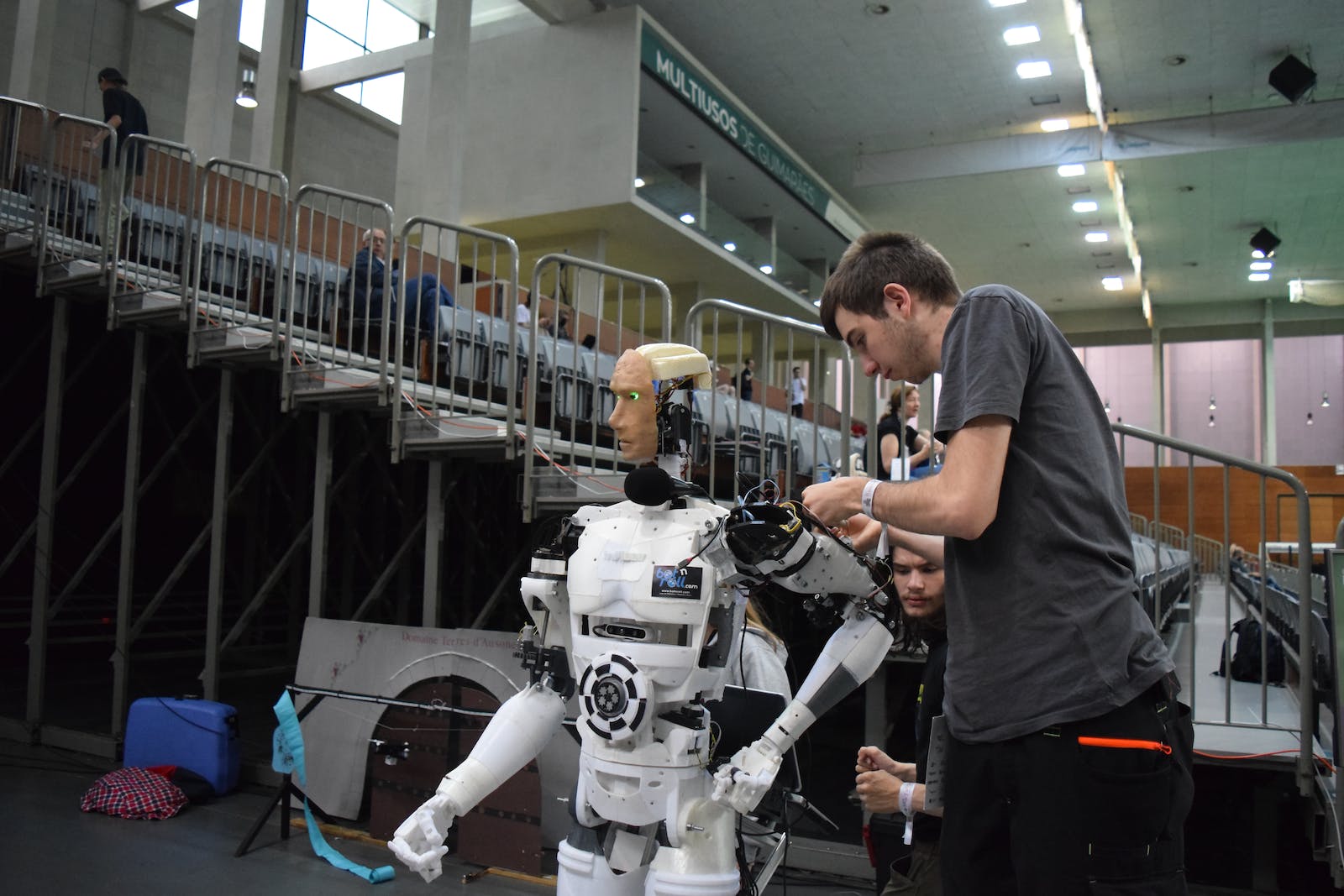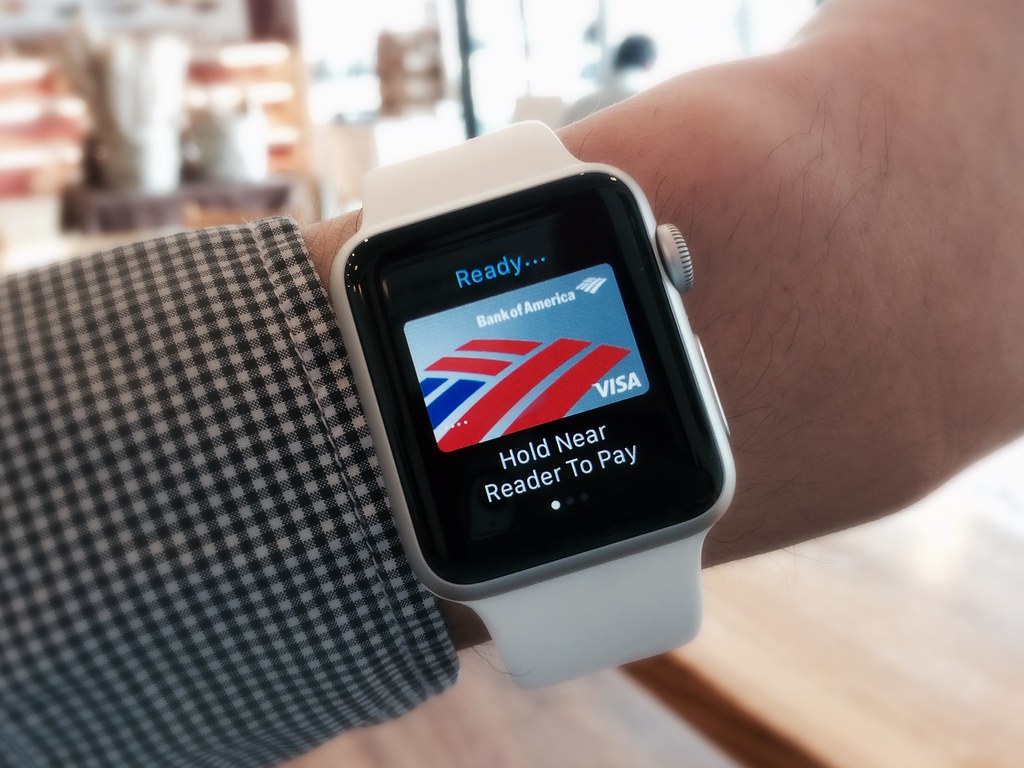Unlocking Potential: The Advantages and Disadvantages of Using ChatGPT for Work
Discover how AI like ChatGPT can transform your work process, but be aware of its limitations.
As the workplace continues to evolve with advancements in technology, tools like ChatGPT have emerged as potential game-changers. This AI-powered language model is designed to assist with a variety of tasks, from answering queries to generating creative content. While the adoption of ChatGPT can enhance productivity and streamline workflows, it also raises important considerations regarding accuracy, dependency, and ethical implications. In this article, we will explore the advantages and disadvantages of using ChatGPT for work, providing a well-rounded perspective for individuals and organizations alike.
ChatGPT represents a profound shift in how we approach tasks at work. It has been trained on vast amounts of data, enabling it to provide quick responses and assistance in countless scenarios. Whether you are looking for a writing assistant, a brainstorming partner, or a means to improve your customer service, the potential benefits of integrating ChatGPT into your workflow are enticing. However, a thorough examination is necessary to navigate the challenges it presents. Let's delve into the pros and cons of adopting this advanced AI tool in your professional setting.
Pros
Integrating ChatGPT into your daily work routine can revolutionize the way you approach various tasks. From promoting efficiency to fostering creativity, let's take a closer look at the remarkable advantages that ChatGPT offers to professionals across different sectors. Understanding these benefits will help you harness the power of this AI tool effectively and improve your overall work experience.
Enhanced Productivity: Get More Done in Less Time
One of the standout advantages of using ChatGPT at work is the significant boost in productivity it can provide. By automating repetitive tasks such as drafting emails, generating reports, or conducting research, ChatGPT enables employees to focus on more strategic and creative aspects of their jobs. The AI can quickly deliver relevant information and generate well-structured content, allowing professionals to complete projects faster and with greater accuracy. This time-saving capability can be particularly beneficial in fast-paced industries where deadlines are tight and efficiency is crucial.
24/7 Accessibility: Your Virtual Assistant at Any Time
Another major benefit of ChatGPT is its availability around the clock. Unlike human assistants, this AI tool doesn’t require breaks or sleep, which means you can access support whenever needed. Whether it’s during off-hours or in different time zones, ChatGPT can assist with inquiries and tasks on-demand. This 24/7 accessibility not only enhances flexibility in the workplace but also allows teams to maintain productivity beyond traditional working hours. Such constant support can be particularly valuable for businesses that operate globally or have employees in diverse locations.
Fostering Creativity: Brainstorm Your Way to Innovation
ChatGPT also serves as a collaborative partner in the brainstorming process, helping teams generate creative ideas and solutions. By interacting with the AI, users can explore various perspectives and angles on a topic, pushing the boundaries of traditional thought processes. The model can provide insightful suggestions, refine concepts, and even help draft presentations. Having an AI co-creator can inspire individuals and teams to think outside the box and develop innovative strategies that may not have been considered otherwise.
Tailored Responses: Customization to Meet Specific Needs
The level of customization offered by ChatGPT ensures that responses can be tailored to meet specific professional needs. Users can guide the AI on tone, style, and content preferences, making it a versatile tool that aligns with various brand voices and communication strategies. This adaptability promotes consistency in messaging, which is essential in maintaining a professional image. Whether crafting marketing copy or internal communications, having a tool that can adjust to particular audience requirements strengthens overall effectiveness.
Cost-Effective Solution: Reduce Overhead Expenses
Utilizing ChatGPT can lead to a reduction in overhead costs, especially for small and medium-sized businesses. By automating several tasks, companies can minimize the need for additional staff or external services. This not only streamlines operations but also contributes to better budget management. Investing in this AI tool can yield significant returns, particularly in environments where labor costs are high and maximizing efficiency is a top priority. Ultimately, a cost-effective approach to work is advantageous for any organization.
Streamlined Communication: Simplifying Team Interactions
Using ChatGPT for work facilitates clearer and more efficient communication among team members. With its ability to parse and summarize complex information, ChatGPT can bridge communication gaps, ensuring everyone is on the same page. By generating concise reports or extracting key points from lengthy discussions, it helps reduce misunderstandings and enhances collaborative efforts, ultimately leading to improved team synergy.
Continuous Learning: Adaptation to User Preferences
One of the notable advantages of ChatGPT is its ability to learn from interactions, allowing it to adapt responses based on user preferences over time. This continuous learning process helps the AI to provide increasingly relevant and useful suggestions or answers. As it fine-tunes its understanding of the user's style and requirements, it becomes a more efficient tool, offering a personalized experience that can enhance overall work performance.
Scalability: Handling Increased Workload
ChatGPT adds a flexible layer of scalability to any work environment. As business demands increase, the AI can seamlessly manage greater workloads without compromising efficiency or quality. It can assist in tasks ranging from customer service inquiries to content creation, allowing businesses to handle peaks in demand with ease. This capability ensures that resources can be allocated effectively while maintaining high levels of productivity.
Clarifying Communication: Make Your Points Crystal Clear
One of the significant advantages of using ChatGPT in work-related communication is its ability to help articulate thoughts and ideas clearly. When explaining complex concepts to clients, co-workers, or superiors, the AI can assist in structuring arguments and simplifying jargon-laden information into easily digestible content. By providing examples, rephrasing, and summarizing key points, ChatGPT ensures that the message is conveyed effectively, reducing the likelihood of misunderstandings. This can be particularly beneficial during presentations, meetings, or client interactions where clear communication is critical for achieving cooperation and alignment. Ultimately, leveraging this tool to explain oneself fosters a more productive dialogue and enhances professional relationships.
Expand Functionality: Leverage a Range of Plugins
One of the key advantages of using ChatGPT for work is the availability of numerous plugins that can significantly enhance its functionality. These plugins allow users to extend the capabilities of ChatGPT beyond its standard offerings, enabling integration with various software tools and platforms. This means that whether you're looking to manage projects, analyze data, or optimize customer interaction, there's likely a plugin tailored to meet those needs. The ability to customize and augment ChatGPT's features through plugins empowers teams to create a more streamlined and effective workflow, allowing for greater agility and responsiveness within their operations. With a wide range of options at your disposal, users can tailor the AI to fit their unique business processes, ensuring it adds maximum value to their work.
Digital Skillset Enhancement: Mastering AI for the Modern Workplace
Employing ChatGPT at work not only improves productivity but also equips users with vital modern digital skills. As employees engage with AI technology, they cultivate an understanding of machine learning concepts, natural language processing, and data-driven decision-making. Familiarity with ChatGPT empowers professionals to harness AI tools effectively, adapting to the growing trend of digital transformation in various industries. This skillset is increasingly valuable in today’s job market, where the ability to leverage technology for problem-solving is essential. By mastering ChatGPT, users position themselves as forward-thinking contributors in their organizations, opening doors to new opportunities and career advancement in a rapidly evolving digital landscape.
Instant Information Retrieval: A Fast Alternative to Search Engines
Using ChatGPT as a quick alternative to traditional search engines like Google offers several advantages. Instead of sifting through multiple search results and web pages to find specific information, users can query ChatGPT directly and receive concise, relevant responses immediately. This instant access to information not only saves valuable time but also streamlines the research process. Additionally, ChatGPT can summarize complex topics and provide tailored explanations based on the user's needs, enhancing overall comprehension. This ability to deliver quick answers in a conversational format makes it a powerful tool for professionals looking to stay informed and make decisions faster in a fast-paced work environment.
Missing a pro?
Let us know which pro you are missing!
Cons
While the benefits of using ChatGPT for work are substantial, it is equally important to consider the potential downsides that come with its adoption. Limitations regarding accuracy, ethical considerations, and over-reliance on AI can pose challenges that need to be recognized. Understanding these drawbacks can provide a balanced perspective and help users navigate the complexities of integrating ChatGPT into their workflows.
Accuracy Issues: The Risk of Misinformation
One of the most pressing disadvantages of utilizing ChatGPT in a work environment is the risk of generating inaccurate or misleading information. While the AI model is advanced, it is not infallible and can produce responses that contain errors or lack context. For professionals relying on this tool for critical decision-making or customer-facing communication, the potential for misinformation can be detrimental. Users must exercise discernment and validate the information provided by ChatGPT to mitigate the risks associated with inaccuracies.
Over-Dependence: Is AI Replacing Human Intelligence?
Another concern is the potential for over-dependence on ChatGPT, which can undermine critical thinking and problem-solving skills. When individuals rely too heavily on AI for routine tasks, there is a risk of diminishing their ability to think independently and creatively. This dependency can lead to reduced innovation and a lack of personal engagement in work processes. Striking a balance between utilizing AI tools and nurturing human intellect is crucial to ensuring that employees remain empowered and actively involved in their roles.
Ethical Considerations: The Responsibility of AI Usage
The adoption of AI, including ChatGPT, raises ethical questions around privacy, data security, and workplace dynamics. When sensitive information is shared with the AI, there is a concern about data misuse or leakage, which can have serious implications for businesses. Moreover, the reliance on AI could also impact job roles and responsibilities, leading to displacement or shifts in the workforce. Addressing these ethical considerations is vital to creating a safe and responsible working environment when leveraging AI technology.
Limited Emotional Intelligence: A Lack of Human Touch
ChatGPT lacks emotional intelligence and the ability to understand and respond to human sentiments. As such, it may not recognize the nuances of communication that are often vital in many professional interactions. For tasks involving customer service, mentorship, or team dynamics, the absence of empathy and social understanding can hinder the quality of engagement. Organizations must be cautious in using AI for roles that require human connection, as the lack of emotional nuance can lead to dissatisfaction among clients or colleagues.
Potential for Miscommunication: Ambiguity in AI Responses
Finally, ambiguity in AI responses can lead to miscommunication in the workplace. Users may interpret the generated content differently than intended, leading to confusion and a breakdown of clarity. The language model might produce answers that are vague or overly complex, resulting in misunderstandings. Clear communication is essential in any work environment, and relying on ambiguous AI responses can compromise effective collaboration. It's important for users to supplement AI-generated content with their own insights to ensure alignment and understanding.
Inability to Verify Sources: Lack of Credibility Checks
One significant downside of using ChatGPT is its inability to verify the sources of information it provides. While it can generate a plethora of responses, there is no mechanism to ensure that the information is credible or well-researched. This limitation can lead to the dissemination of unverified facts or baseless suggestions, potentially misguiding users and affecting decision-making processes in professional settings.
Contextual Limitations: Difficulty in Understanding Nuances
ChatGPT may struggle to fully grasp the nuances of complex or specialized topics. While it excels in generating conversational responses, it can sometimes misinterpret context, especially in highly technical or specific discussions. This can hinder effectiveness in professional environments requiring precise language or industry-specific knowledge, possibly leading to confusion or suboptimal outcomes in critical tasks.
Data Privacy Concerns: Risks of Sensitive Information Exposure
Working with ChatGPT involves a certain level of data privacy concern, especially when sensitive or proprietary information is shared within its framework. There is the risk that information disclosed during interactions might be stored or misused, raising alarms about data security protocols. Organizations must tread carefully to ensure their confidential data remains safe, as breaches could have significant implications for both trust and compliance.
Poor Output Quality: The Danger of Inadequate Inputs
One major drawback of using ChatGPT for work is the risk of producing very poor output quality when users do not understand how to properly input parameters. The effectiveness of ChatGPT largely depends on the clarity and specificity of the prompts given to it. Users unfamiliar with how to phrase queries or provide context may receive vague, irrelevant, or low-quality responses. This can lead to frustration and inefficiency, particularly in professional settings where accurate and actionable output is critical. Organizations should consider training their employees on effectively interacting with AI systems to avoid the pitfalls of inadequate input, ensuring they maximize the value derived from these advanced tools.
Self-Doubt: The Psychological Toll of AI Dependence
Relying heavily on ChatGPT for work can lead to self-doubt among employees. When individuals frequently turn to AI for answers, they might begin to question their own abilities and knowledge. This reliance can create a dependency where users feel less confident in their decision-making skills and problem-solving capabilities. Over time, this erosion of self-trust can hinder professional growth and development, as individuals may hesitate to take initiative or make independent judgments. Cultivating a healthy balance between leveraging AI technology and maintaining one's confidence is essential for personal and professional empowerment. Encouraging self-reliance and critical thinking skills can help mitigate the psychological impacts of over-dependence on AI tools.
Resistance to Change: Employee Hesitancy Around AI Tools
Another significant drawback of incorporating ChatGPT in the workplace is the resistance from some employees who may not be comfortable with or allow the use of this technology. This hesitancy can stem from various factors, including fear of job displacement, skepticism about the technology's effectiveness, or concerns regarding data security and privacy. Such resistance can create a divide within teams, leading to inconsistencies in workflow and collaboration. When not all employees are on board with using AI tools, it can hinder the overall productivity and innovation of the organization. Leadership must actively address these concerns, foster open communication, and provide adequate training to ensure a smooth transition and broader acceptance of AI solutions in the workplace.
Restricted Access: Not All Companies Embrace AI Tools
A significant drawback of using ChatGPT for work is that some companies impose restrictions on its usage, either due to internal policies or compliance regulations. Many organizations remain cautious about integrating AI technologies into their workflows, fearing potential risks associated with data privacy, misinformation, and legal implications. This limitation can hinder employees from leveraging the efficiencies and creative solutions that ChatGPT can provide, leading to frustration and a feeling of constraint. Moreover, it may create a disconnect between employees who are familiar with AI advancements and those who are not, stifling innovation and collaboration within teams. To ensure that all employees are equipped with the best tools for productivity, organizations should evaluate the benefits and risks of embracing AI technologies like ChatGPT.
Missing a con?
Let us know which con you are missing!
Conclusion
In conclusion, using ChatGPT for work presents a unique set of advantages and disadvantages that require careful consideration. While the benefits of enhanced productivity, accessibility, creativity, customization, and cost-efficiency are powerful incentives for integrating AI into professional settings, it is crucial to remain cognizant of the risks associated with accuracy, over-dependence, ethical concerns, emotional intelligence, and potential miscommunication. By striking the right balance between leveraging AI tools and maintaining essential human skills, organizations can harness the full potential of ChatGPT while mitigating its challenges for a more effective and harmonious work environment.
What do you think?
Do you think the pros outweigh the cons?









